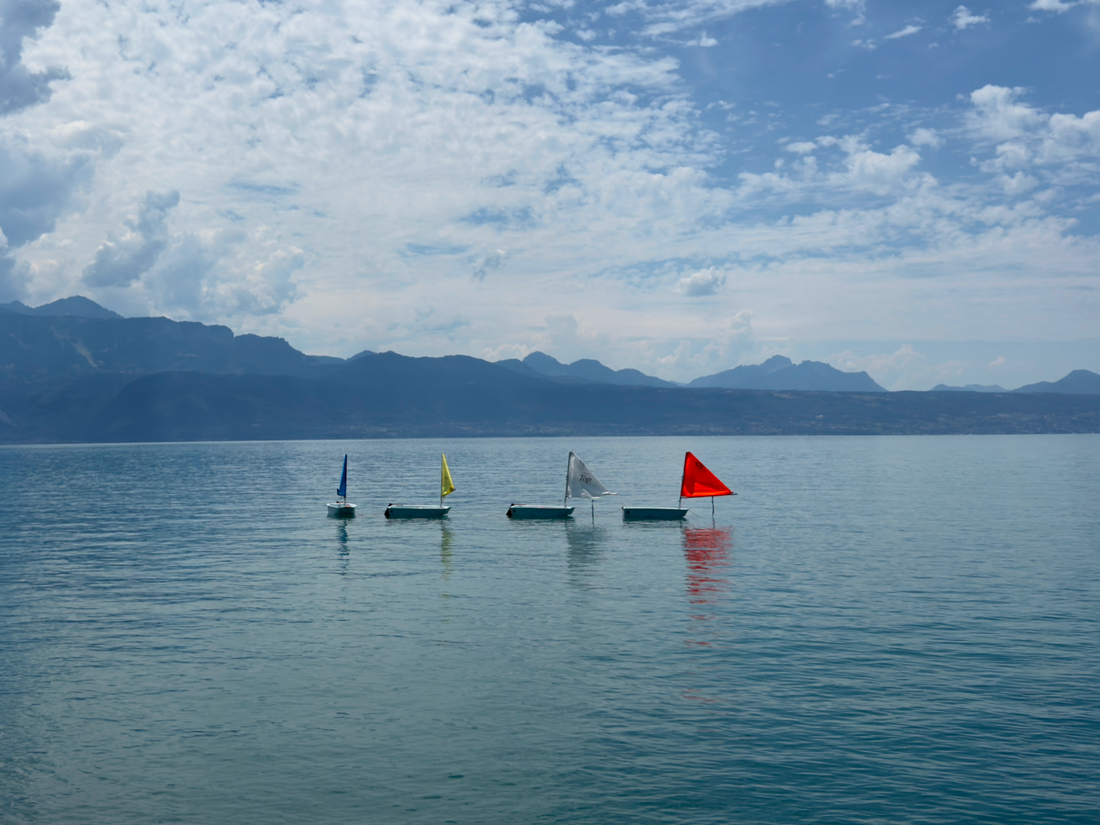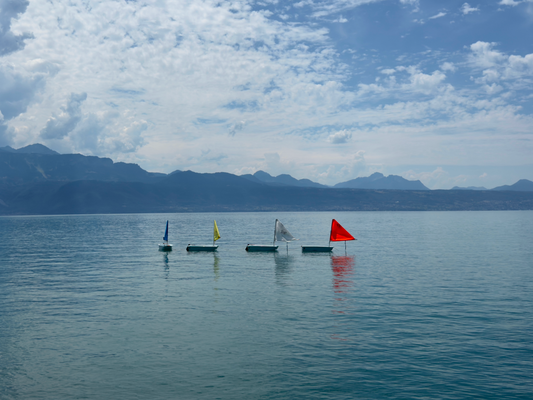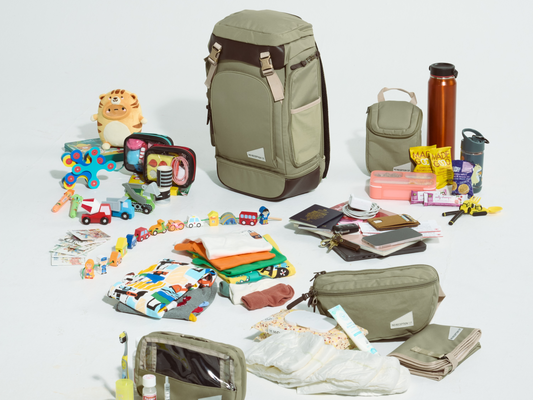Image courtesy of Sonali/Unsplash
Introduction
If you’re a North American parent, you might assume summer camp means shipping kids off to the same lakeside cabins you grew up going to year after year. But what if instead, your child spent a week (or a month) in Europe — learning languages, exploring new cultures, and making friends from around the world?
We’re a family of four who’ve now done summer camps in Europe for two years in a row. Our kids started as young as 2.5 years old and 5 years old, and we’ve now experienced camps in France, Switzerland, and the Netherlands. In this guide, we’ll share everything you need to know about having your kids attend summer camp abroad too: from ages and costs; to how to find English-speaking programs; plus reviews of camps we’ve personally tried.
Why Consider Summer Camp in Europe?
Summer camps in Europe are becoming a hidden gem for North American families. Here’s why:
- For Kids: cultural immersion, new languages (French, Dutch, German, Spanish, etc.), outdoor adventures, and friendships across borders.
- For Parents: structured childcare during the day = parents having the freedom to explore non-child-friendly museums, try Michelin-starred restaurants, and — on the more practical level — simply work remotely without juggling full-time parenting.
- For Families: a way to combine vacation + enrichment. You get the best of travel while knowing your kids are engaged and cared for.
👉 In our case, sending our kids to bilingual camps was a natural fit since Daniel is fluent in French — but we quickly realized it’s also an incredible lifestyle enhancer for any parent who can work-from-anywhere or wants to extend a family trip abroad.
What Ages Can Attend European Summer Camps?
Most camps in Europe start accepting children from age 3, once they’re potty trained.
- Day camps: often begin at ages 3–4 (great for families with younger kids who want half-days or are ready for full-days).
- Overnight camps: usually for ages 7+ (though some exceptions exist).
💡 Our experience:
- Our youngest started at 2.5 years old in a Paris half-day camp (during the Olympics) which felt like the appropriate amount of time for him. We picked him up after lunch and brought him home for his nap.
- By 3.5 years old, he transitioned to a full-day program and felt comfortable napping at the camp. Our oldest started full-day camp at 5-years-old without issues.
This flexibility makes Europe a surprisingly good option even for families with younger children.
How to Find English-Speaking Summer Camps in Europe?
Finding the right camp can feel overwhelming, but there are several reliable paths:
-
Camp directories:
- World Camps – Europe is a searchable database of programs across the continent.
-
Expat networks:
- Reddit threads (city-specific), expat Facebook groups, and parent WhatsApp communities often have first-hand reviews that help you dig deeper into camps you’ve discovered from other sources.
-
International schools:
- Many run bilingual or English-only summer programs. This is one of the best-kept secrets for North American families.
-
Influencers/bloggers:
- Parents like @cargobikemomma and Petite Passport share great roundups of European camps.
👉 We’ve personally used all of the above — a mix of Googling, asking locals, and finding gems through parent networks.
How Much Do Summer Camps in Europe Cost?
Compared to U.S. programs, European camps are often more affordable and more inclusive.
- Typical cost: €350–€550 per week.
- Hours: 8:30 AM – 4 or 5 PM (full-day programs) are available. 8:30 AM – 12:30 or 1 PM (half-day programs) are also an option ideal for younger children.
- Meals: Most include lunch (and sometimes snacks).
💡 Country Price differences:
- Switzerland tends to be at the higher end of the range.
- France and the Netherlands are more midrange.
- Spain and Portugal often come in lower.
For budgeting families, this makes Europe a realistic alternative — especially if you’re already planning a summer trip abroad.
Which European Country is Best for Summer Camp?
The country you ultimately choose is of course a very personal choice based on your goals for and requirements as a family. Parents often search country-by-country, so here’s a breakdown of what to expect in popular European destinations:
- France: Strong selection of bilingual camps in Paris and major cities offer great opportunities for cultural immersion through a bilingual (French/English) or entirely French-speaking environment. A broad range of camp types and activities are offered (e.g. arts, cooking, outdoor adventures, etc.) making this widely appealing to many families.
- Netherlands: Creative, arts-forward programs with a casual, community feel. English is also widely used in summer camps here, which may be more approachable for many North American English-speaking families.
- Switzerland: Premium, outdoorsy camps with hiking, swimming, and mountain activities. Sports-focused camps are also available that support a range of sports in one camp, or skill development in a specific sport (e.g. soccer). English is widely used in summer camps here, though options in French, German or Italian may be available depending on the region.
- Italy: Art + culture heavy camps (e.g. theater, dance, arts & crafts, music), often tied to historical sites and museums, make for an excellent cultural immersion. Sports camps are also popular (especially soccer and water-sports like swimming or sailing)
- Portugal & Spain: More affordable, family-friendly options combined with Portugese or Spanish language immersion. Great for active kids who enjoy sports (e.g. soccer, basketball, tennis); surfing and water sports; or other outdoor adventure activities.
Camps We’ve Tried Ourselves (Real Parent Reviews)
Here’s where our kids have actually gone — and what we thought:
- WOW Amsterdam (Netherlands): Our 3-year-old and 6-year-old both loved this small, arts-focused, full-day camp where they spent the majority of their time side-by-side making different art projects. This charming, English-speaking camp effectively balances the day’s schedule with significant time outdoors at one of Amsterdam’s many beautiful playgrounds. We also loved the camp’s uplifting, light-filled environment complete with an indoor playground where the kids started each day.
- ISL Switzerland: This extremely well-organized camp is run by the International School of Lausanne, and offers full-days packed with sports and outdoor activities — all taking place at the school’s beautiful facilities. While sports are the primary focus, the camp also balanced the schedule well with cooking lessons, arts and crafts, games, and even weekly day-trips to swim at the lake, local swimming pools, and other local attractions with animals. ISL Switzerland is fully bilingual (French + English) and has exceptional formal communication, providing a detailed itinerary each week. Our 3-year-old and 6-year-old came home everyday with tales of their adventures, and feeling a little more ready than usual for bed!
- Living School Paris: Our kids happily attended this bilingual (French + English) day camp run by the international school Living School for two summers in a row. This camp offers half-day and full-day schedules, and a scheduled of activities that change based on weekly themes (e.g. one of our kid’s favorite weekly themes was “Insects”!). We love the camp’s emphasis on emotional well-being, and have seen noticeable shifts in our kids’ abilities to navigate emotionally challenging situations.
Other camps that are on our list (but in full transparency, we have not tried these):
Switzerland
- TASIS, Lugano — “Minnows” (ages 4–6) day program; same campus also runs CDE (7–10) and older divisions.
- Institut Florimont, Geneva — Multi-activity ages 4–9 day camps (8:00–17:00, lunch included).
- Ecolint (International School of Geneva) — Bilingual holiday camps from age 3 up to 13; multiple campuses around Geneva/Vaud.
France (Paris region)
- ICS Paris × ALCNY (central Paris) — Summer + “Back to School” camps ages 3–16; Early Learners (3–5) track
- Ermitage International School (Maisons-Laffitte, near Paris) — Bilingual day/boarding options ages 3–16; joint activities across age groups.
- American School of Paris (Saint-Cloud) — Holiday/summer programs spanning early childhood through Grade 12 (i.e., includes early years); ASP is a reliable English-language option on the west side of Paris.
Spain
- BFIS — Benjamin Franklin International School (Barcelona) — Sports Summer Camp ages 4–11; early drop/late pick-up available.
- International College Spain (Madrid, Nord Anglia) — English-medium summer camps ages 3–18.
- International School of Madrid (Chamartín) — English immersion Summer School ages 2–11; half-day/full-day options and weekly pricing published.
Netherlands (Amsterdam area)
- The Little Gym Amsterdam (Zuidas/De Pijp) — Half-day themed camps ages 3–8 (great if you want gentle hours for preschoolers).
Germany
- ISF International School Frankfurt Rhein-Main — “Summer School” open to Kindergarten/Preschool and up (so 3–5s are eligible); themed mornings + fun activities p.m.
- Spielsprachschule Berlin Daycamps — English/German bilingual daycamps ages 4–12 across the Berlin summer break.
Portugal
- United Lisbon International School (central Lisbon) — Summer camp brochure lists tracks for ages 3–5 and 6–12; English-led; open to non-students.
- Prime School (Estoril/Lisbon) — “Junior Summer Camp” ages 3–12 with themed weeks (Adventure, Sports, Science).
- CAISL — Carlucci American Int’l School of Lisbon (Cascais) — Open to the community; Summer Activities page (2025) outlines multiple camps; CAISL serves Early Childhood (age 3) through HS (their EC starting age helps signal fit for 3–5s).
When do I need to book this?
The short answer? Camps fill up quickly — aim to book between January and March before the summer you are thinking about. Do your research now so you can note down the registration dates and be ready. You can typically book these camps online, but some may require you to e-mail them ahead of time or subscribe to their mailing list so you are notified when registration opens up.
FAQs
Are European summer camps safe?
Yes — most are run by international schools or accredited organizations with strict safety protocols. Adult to Kid ratios are usually small, staff are vetted, and communication with parents is clear.
What age is best for a first overnight camp abroad?
Most programs recommend 7+, though some families wait until 9–10.
Do camps in Europe include meals?
Yes, lunch is usually included, and sometimes snacks.
How much do camps cost in Europe?
Between €350–€550 per week depending on the country.
How do I find English-speaking camps?
Directories like World Camps, plus international schools and expat parent groups.
How should I pack for my kids attending summer camp abroad?
Pack layers, swimsuits, and camp-friendly gear (see our packing list here — featuring the bags we use ourselves).
Conclusion
If you’ve ever thought, “Could we really do summer camp abroad?” — the answer is yes. Camps in Europe can be safe, enriching, and surprisingly affordable. We’ve also found that summer camp combines perfectly with extended family travel, allowing parents the ability to work Monday to Friday, reserving family adventures for weekends and after summer camp days.
Our kids have learned new languages, built confidence, and made international friends — and we’ve had the chance to experience Europe in a whole new way as parents.
Save this guide for planning next summer, and share it with your partner if you’re curious about making it happen.




